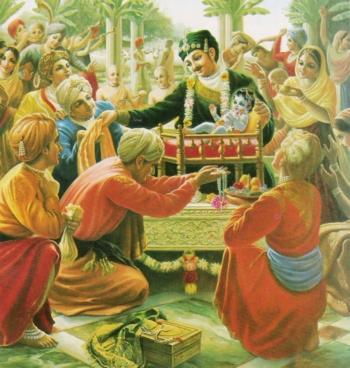Graduate Degrees ; Associate in Bhakti Sastra, and Bhakti Sastri will be issued post haste, as previously promised, to all those who have paid the rather newish annual $20. site fees. Site fees may be paid via Paypal at left side front page.
Indicate preferred format; pocket size /wallet or certificate for framing. So far, George Pye, Dr. Ananta Sesa, and Trnikrta-trnavarta dasa, are on that list.
PS; Sorry for all the money-related site notifications lately, but those who are onsite know it is infrequent. However, we need to get this show on the road moreso ... to firm up our services and provide lasting value to our members.
Ideally, we should be buying one house in the holy dhamas for occupation by our members when they travel to India. Ideally, our members, when they die, will leave an estate to this site for that purpose etc also. It would be grand to have books and prasadam distribution and sankirtan going on, and this is our ideal, Krsna willing. For now, our online site is w










